Struggling with overeating or binge eating as a vegan? Here’s how to improve your relationship with food.
Feeling unable to control yourself around certain foods and falling off your dietary wagon can sometimes result in binge eating.
This problem isn’t unique to vegans, though — many people have strict rules about “good” and “bad” foods these days.
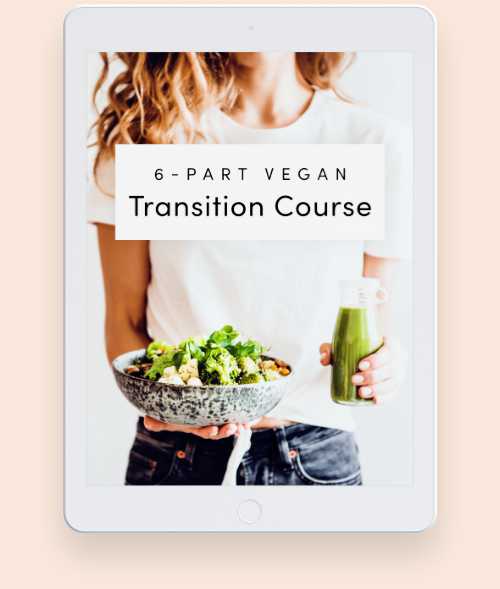
join our free vegan course!
Learn how to thrive on a plant-based diet with practical tips & a 3-day meal plan!
Granted, vegans theoretically have fewer foods to choose from, but with all of the plant-based options on the market these days, you can almost always find a vegan alternative to any animal-based food.
There are different reasons why people go vegan, though — and some types of vegans are motivated primarily by health or weight loss reasons and don’t abstain from animal products due to ethical concerns.
Let’s explore why you might struggle with overeating or binge eating on a vegan diet and what to do about it!
Disclaimer
We are not health professionals and urge you to seek out help from a doctor or therapist to help you deal with your eating issues. As they can be potentially life-threatening, we want you to take really good care of yourself.
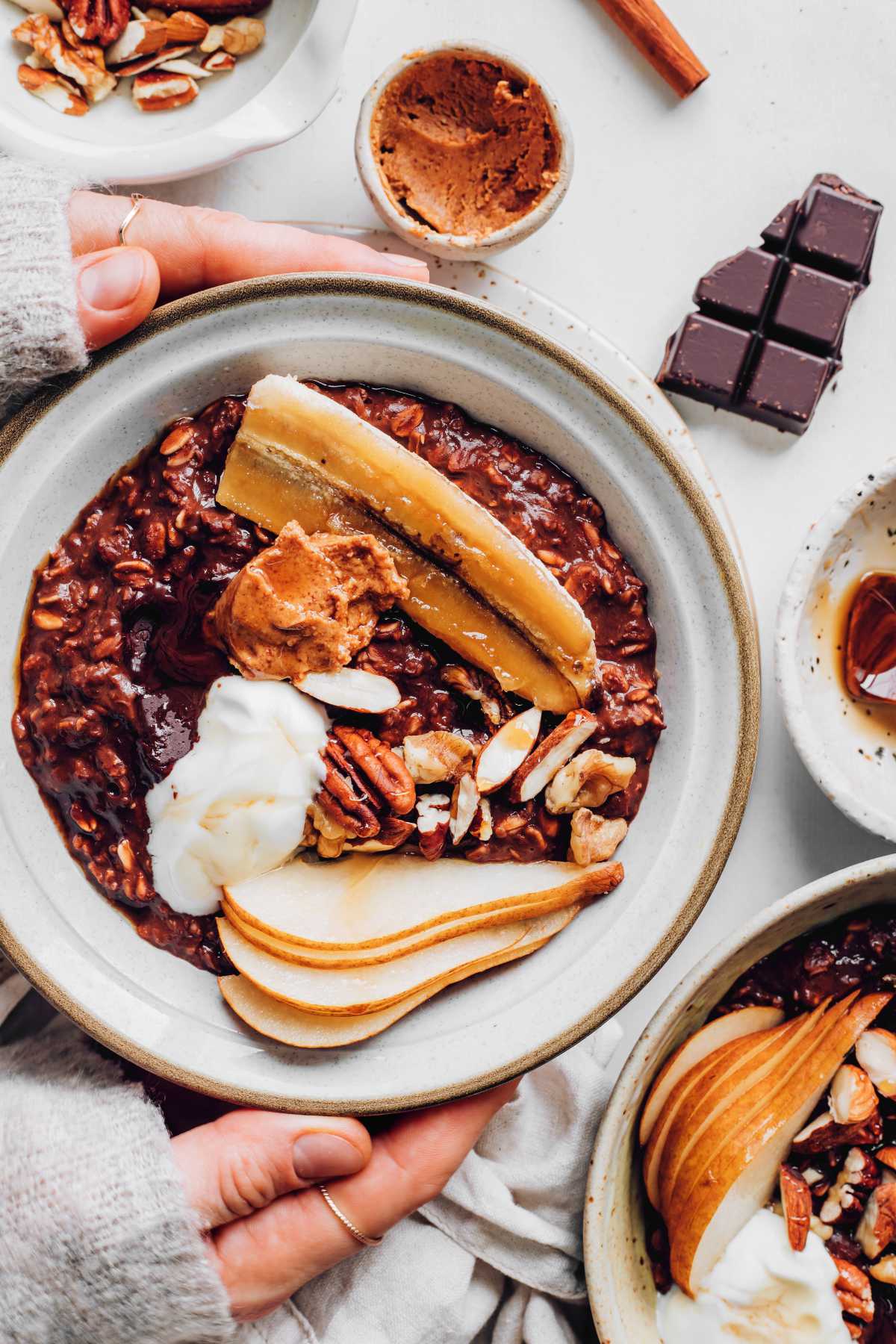
Common reasons for binge eating
If you’re dealing with overeating or uncontrollable eating episodes, you might feel familiar with some of the following states.
1. Feeling overwhelmed, anxious or sad
That’s where emotional eating is most likely coming from: Wanting a way to release tension, feeling warm and fuzzy, or just looking for reasons not to follow through with your tasks.
2. Lacking nutrients and energy
This physical reason is more common than you would think. Many people restrict their carbohydrates these days and therefore lack great energy. But not eating enough veggies, fruits, or legumes can also cause nutritional imbalances and deficiencies that result in huge cravings.
3. Learned behavior that’s easily triggered
Let’s face it, you have turned to food to calm you down and give you happiness ever since you were a child, probably.
This is a deeply ingrained pattern and habit that you’ve built up over a long time. So, of course, it gets triggered in certain situations again and again, which can make you feel like you’re on autopilot.
4. Feeling restricted in your diet
This harmful mindset will make you want to binge on forbidden foods every time they are around. Only when you free yourself from restriction, can you actually make a choice whether or not you want to eat a certain food.
Now, being aware of the most common reasons for binge eating is a good first step, but it doesn’t actually help you in terms of not binging anymore.
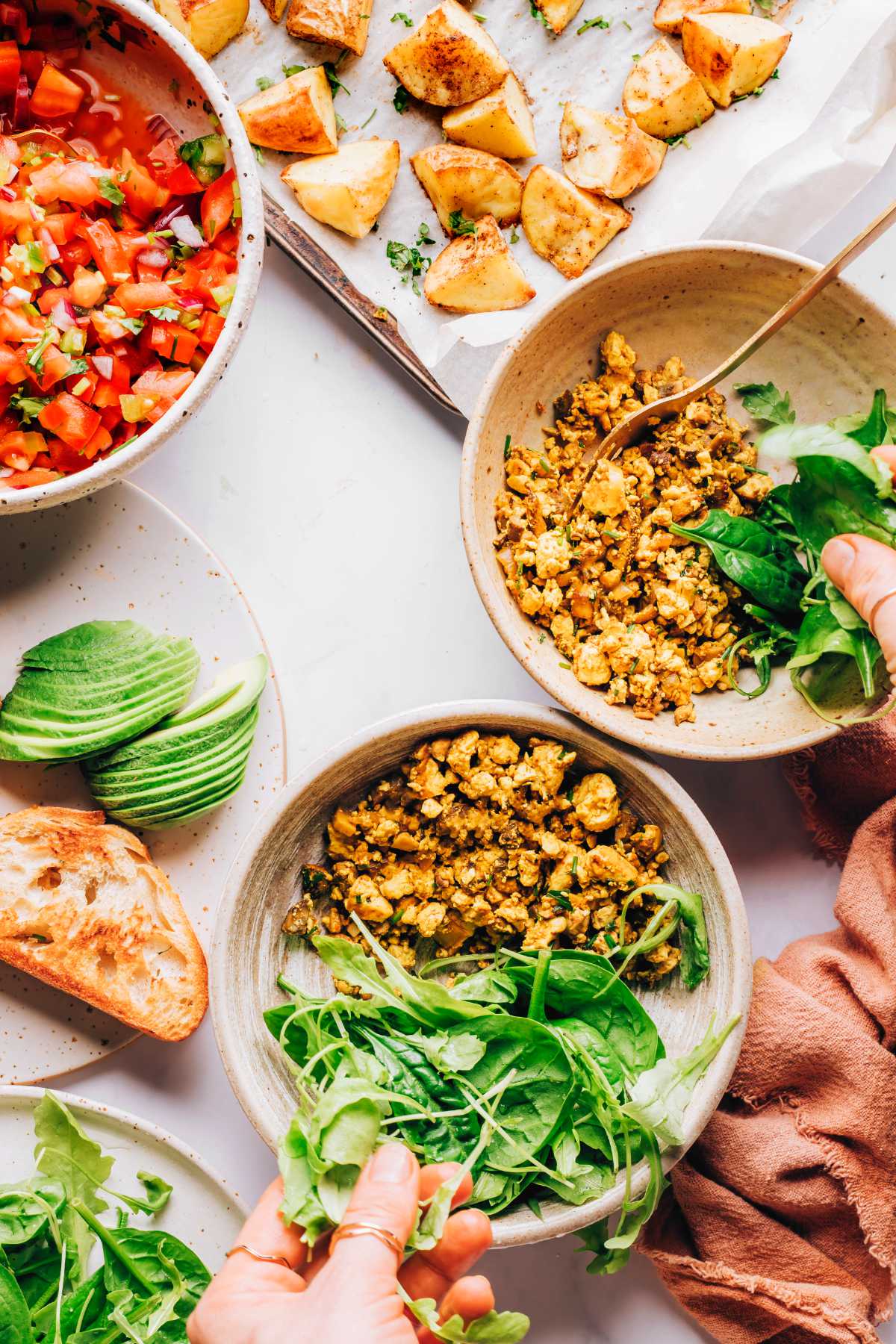
How to prevent binge eating
The following strategies are applicable no matter if you follow a vegan, vegetarian, or mixed diet.
1. Eat enough food
Calorie restriction, intentional or unintentional, drives hunger and overeating! It’ll be much harder to eat just as much as you need when you are on a blood sugar roller coaster.
If you eat lots of whole foods as a vegan, make sure that you meet your caloric needs for the day!
Track your meals and snacks with a free tool like cronometer (affiliate link) to make sure you meet your recommendations.
Don’t forget to stay hydrated throughout the day, too!
2. Eat regularly, don’t skip meals
Start each day with a proper breakfast if possible. No need to stuff your face if you’re not hungry, but a little something can go a long way.
Eating regularly throughout the day will help you gain more control over your eating in general because it keeps your blood sugar regulated and keeps you from problematic forms of dieting, and minimized urges to binge.
Play around with eating 3 large main meals or smaller meals and snacks throughout the day to see what works best for you.
3. Know your triggers
Without careful monitoring, you don’t know how you slip into overeating or binge eating.
Writing down when you typically overeat or how you felt when you wanted to binge, who you were with or what you were doing, can give you great insight!
Noting these eating patterns, events, and feelings is the first step to preventing binge eating. The next thing to do is to find alternatives for these trigger situations!
Some will be easy to avoid in the future, others can only be handled differently.
4. Tackle food anxiety
Do some foods cause you to overeat or binge eat more easily? Make a list of anxiety-causing or “forbidden” foods.
Decide whether you feel confident in gradually exposing and reintroducing them into your diet! Ask a friend or family member to support you during these situations if you can’t face them alone.
If this thought causes too much anxiety, decide if you just want to omit this one food from your diet by simply not buying it again. This is sometimes the only option for those who deal with food addictions!
5. Focus on fiber & protein
Eating healthy foods like whole grains, legumes, fruits, veggies, nuts, and seeds, can help you feel more satiated compared to eating refined foods.
Processed foods and sugars often provide a rapid burst of energy, followed by a “crash” and even more cravings!
Great high-fiber foods include brown rice, oatmeal, whole grain products, apples, bananas, berries, cruciferous veggies, and avocadoes. Don’t forget the healthy fats!
Check out our plant-based protein articles below!
6. Ditch the diet mentality
Stop labeling food as “good” and “bad” because it puts too much pressure on you. What if you eat “bad” food? Does that mean you’re bad, too?
This mindset can increase feelings of guilt, and set you up for the next binge.
Diet mentality usually also revolves around eating only small amounts of food or undereating calories in any other way. It also causes you to think too much about your physical appearance!
7. Immerse yourself in joyful activities
Move your focus away from food and your body by filling your day (and life) with happy and joyful activities.
This can also reduce boredom eating!
Anything from dancing to knitting, powerlifting, yoga, puzzling, or gardening will work. Get creative and see how this can have a positive effect on your eating behavior.

8. Get moving
Not only can exercise and movement release endorphins, it also reduces stress levels, and keeps you occupied!
A long walk through nature or your favorite exercise class can keep your mind off of food and helps you to connect with the world around you.
9. Surve the urge to binge
There is a way to stop binge eating right when it hits! Don’t expect that your urge to overeat will go away very quickly once you’ve been following all of these tips.
You can just “sit with your emotion” and watch what goes through your mind without acting on anything. This is sometimes referred to “surfing the urge,” just living through the strong need to start binging but doing something else instead.
You’ll notice that the urge, just like a wave in the ocean, will grow, and then wash away. Even if you haven’t eaten a bite!
10. Build a support system
Talk to loved ones about your situation! Pick out someone who you feel you can really trust and who can encourage you when you’re feeling down.
If you haven’t already, seek care from a healthcare team with experience in treating disordered eating.
This is the greatest step you can take for long-term recovery — and no, you don’t have to let your problem become “bad enough” first.
11. Stay positive
Be your own biggest motivator when it comes to changing your eating pattern! We often fall back to negative self-talk and think we’re a failure for not being able to stop binge eating immediately.
Give yourself encouragement, like leaving sticky notes with inspiring messages around your house, rewarding yourself for trying to change, or keeping a list of positive things at hand.
Talking to someone from your personal support system will also be helpful!
12. Sleep & relax enough
Sleep can have a huge effect on hunger and appetite! Try to get at least eight hours of quality sleep each night to reduce overeating or those late-night binge eating sessions.
Doing something relaxing just before hitting the pillow, i.e., reading a good novel, cuddling, or doing yoga, can further promote good sleep.

FAQs
Does veganism cause eating disorders?
No, being vegan doesn’t cause eating disorders like binge eating or undereating.
Following a plant-based diet can be a way to mask an existing eating disorder, and someone who is an ethical vegan but struggles with undereating or orthorexia can recover without eating animal products!
There is no single cause of eating disorders and no single solution either.
What is the binge restrict cycle?
The binge restrict cycle is when you eat a large amount of food and want to make up for it by restricting for the rest of the day or the next day.
Restriction causes your body to get intense cravings for food again, which could be the trigger for another binge in the future.
Conclusion
- Remember that everyone’s journey is different
- Talk to someone about your struggles
- Base your diet on nourishing whole foods
- Allow for treats and don’t label foods as “bad”
- Fix the triggers & get to the root cause
- You can get a hold of binge eating while staying on a vegan diet
More guides
If you liked this article, be sure to check out the following ones!
Do you struggle with binge eating as a vegan? What are your strategies to prevent overeating? Share with us in the comments below and Pin this article here.


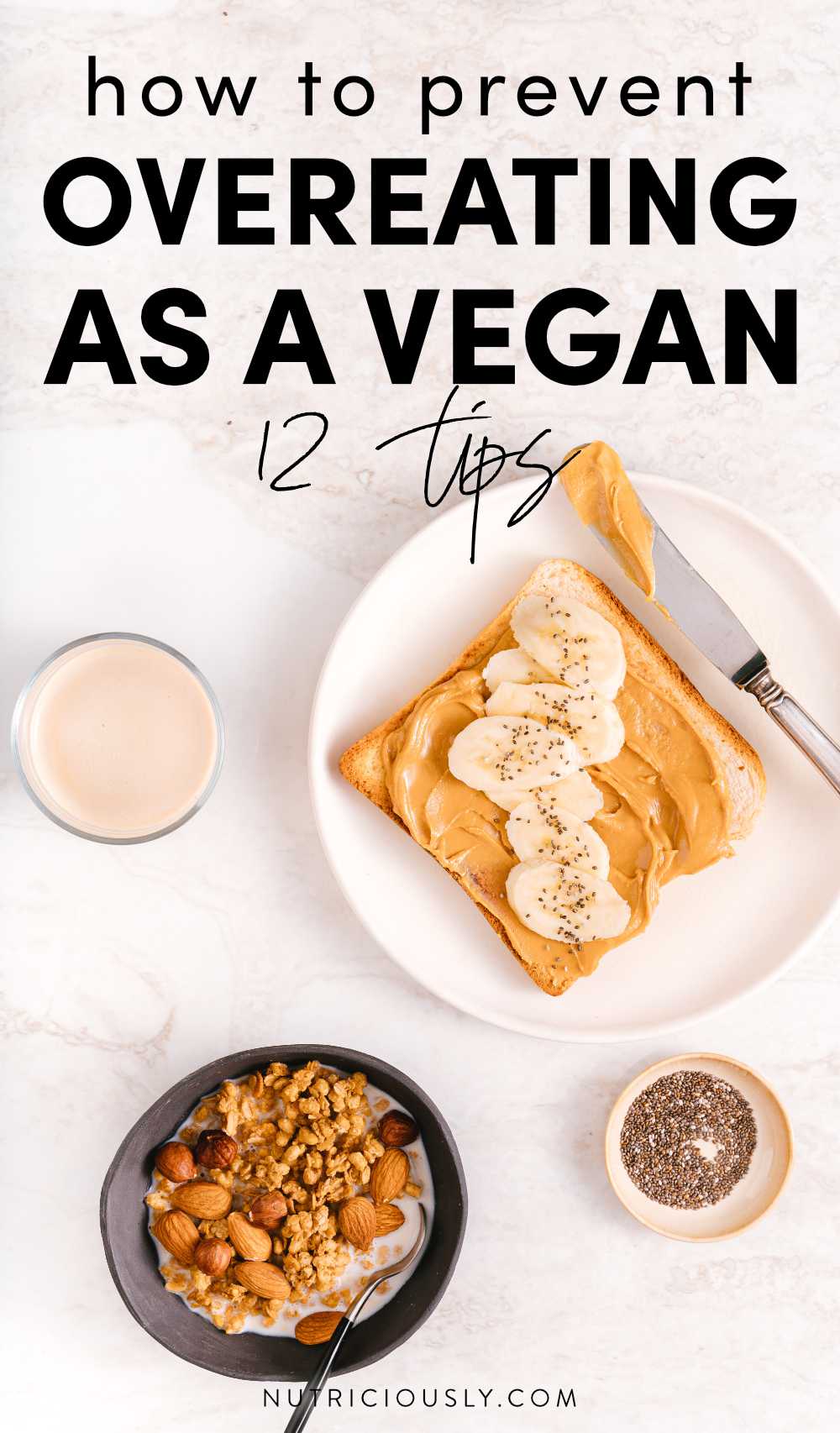
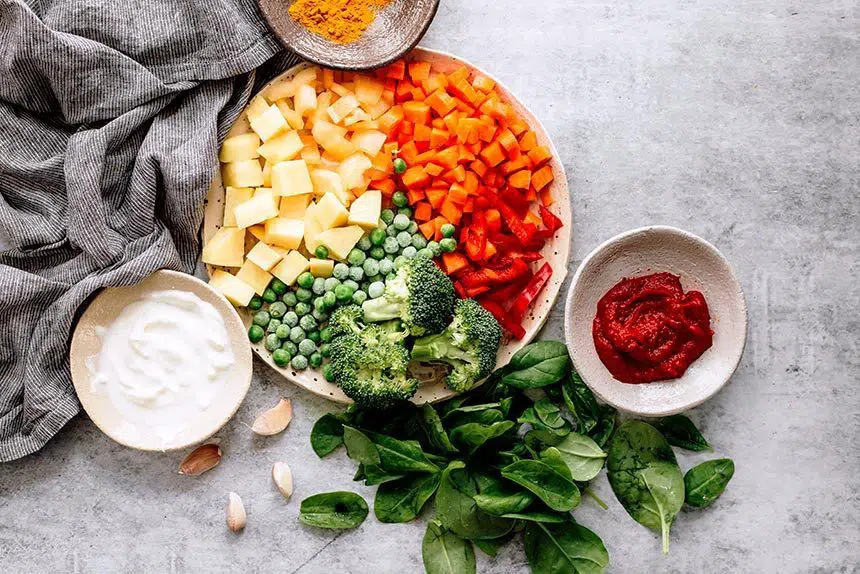
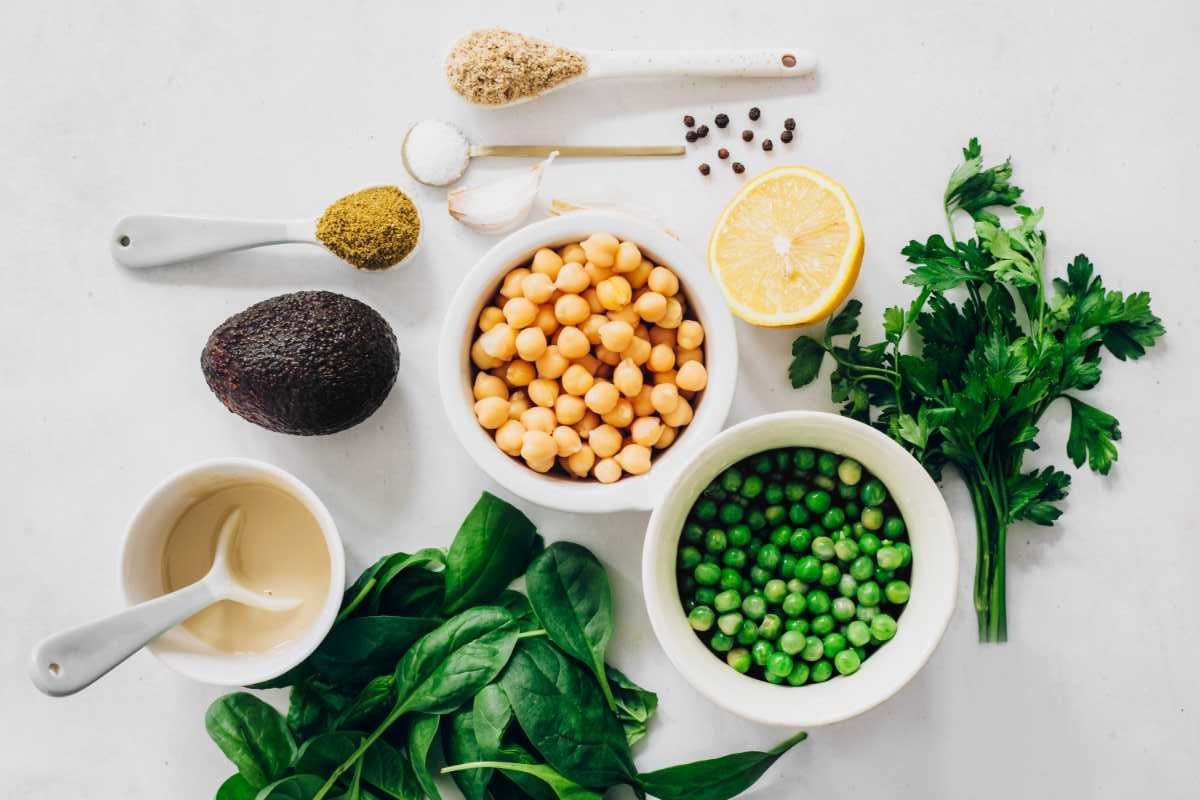
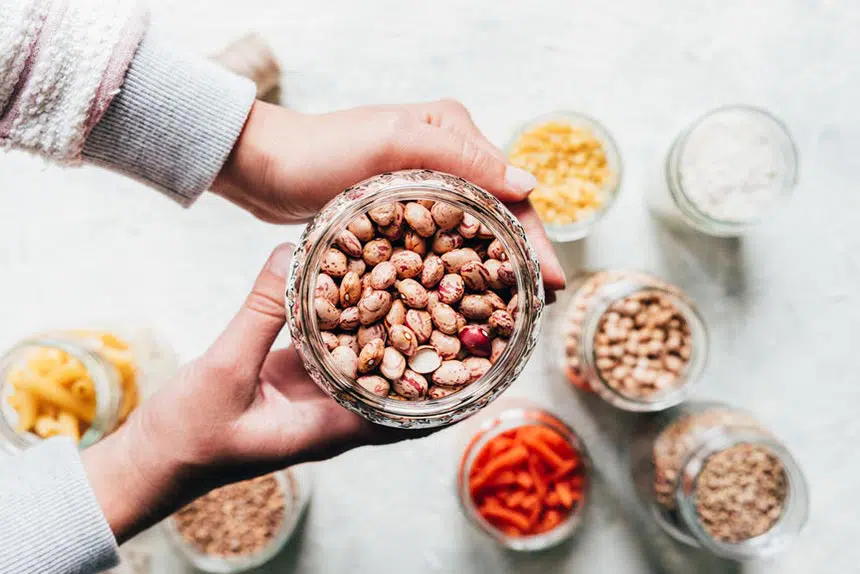
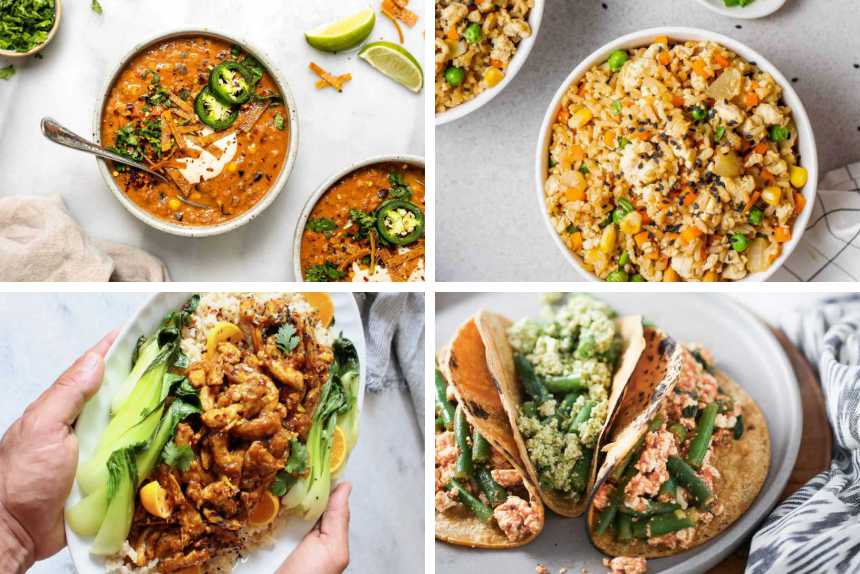



 Alena Schowalter is a Certified Vegan Nutritionist who has been a vegetarian since childhood and vegan since 2012. Together with her husband, she founded nutriciously in 2015 and has been guiding thousands of people through different transition stages towards a healthy plant-based diet. She’s received training in the fields of nutrition, music therapy and social work. Alena enjoys discussions around vegan ethics, walks through nature and creating new recipes.
Alena Schowalter is a Certified Vegan Nutritionist who has been a vegetarian since childhood and vegan since 2012. Together with her husband, she founded nutriciously in 2015 and has been guiding thousands of people through different transition stages towards a healthy plant-based diet. She’s received training in the fields of nutrition, music therapy and social work. Alena enjoys discussions around vegan ethics, walks through nature and creating new recipes.
Thank you for your wonderful sight. Lots of love and compassion. Just what I needed. Robin
Thank you for this article. A lot of good advice. This has been a big struggle for me since becoming vegan. It didn’t really occur to me that becoming vegan could trigger old disordered eating thoughts and habits, but of course it makes sense.
Thank you. You wrote in such a way, touching on anything that goes with it and im really thankful. Going to try and implement.
thank you.
I have been struggling with a very strong eating disorder. I became vegan and it helped me very much but i became to struggle with an other very unpleasant problem: overeating. this article is very helpful thank you. you gave me new inside in my struggle. now that i understand it better, i will be able to fix it more easily to. thank you very much.
Wow this just hit the nail on the head for me. Thank you so much for putting words to my feelings and hope to my discouragement. I am empowered to put these tools into practice and ultimately take care of myself better. I appreciate the time you took to write this and share this great advice with fellow vegans <3
thanks so much for the lovely comment, I’m so happy my words made a difference ♡
i just thought i could take this whole thing and run with it….
This article is supposed to be about eating vegan Yeah the picture shows a woman eating ice cream which we all know is likely not vegan and then the first few sentences it mentions cheese, not vegan cheese.